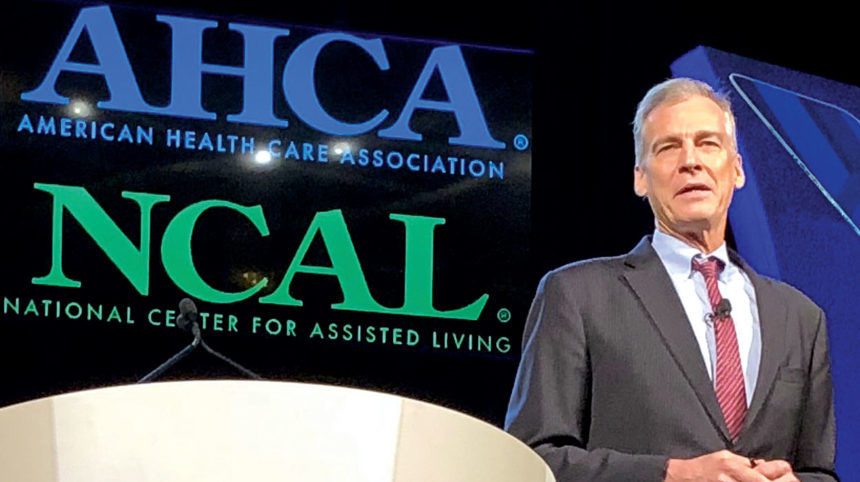
A proposed change in how low-wage hospitals pay employees could be a threat to recruitment and retention for long-term care providers, according to formal comments responding to the Centers for Medicare & Medicaid Services’ proposed rules for 2020.
A planned adjustment to the inpatient hospital wage index aims to help hospitals improve hiring. CMS proposes allowing those on the bottom quarter of the index to increase pay. But there is no similar proposal included in the draft rules for skilled nursing providers.
“AHCA is concerned that introducing such an add-on for these hospitals will allow hospitals to offer higher wages than post-acute care providers, including SNFs,” wrote Mark Parkinson, president of the American Health Care Association in comments posted to the Federal Register. “Providing additional resources to hospitals while not offering additional resources to SNFs is problematic due to the nature of the Patient-Driven Payment Model.”
In his 30-page letter, Parkinson outlined a scenario in which SNFs respond to PDPM incentives to provide more person-centered care, admit higher acuity patients and aim to deliver more nursing care as opposed to therapy — only to find themselves unable to recruit enough highly skilled registered nurses.
“Such a change would further exacerbate the competitive disadvantage of post-acute providers in recruiting staff, as hospitals already can pay more,” he explained, adding that the threat is “especially problematic” in light of the nursing shortage.
LeadingAge also asked CMS to consider the potential impact of hospital wage-setting on SNFs, and questioned what the change in policy for inpatient providers might mean for SNFs in future years. SNFs show sizeable variations between frontier, rural, and urban facilities as well as a spread between those at the 25th compared to the 75th percentile of Medicare margins.
SNFs “are facing wage pressures that in some instances might be similar to the underlying issues that hospitals in their region face but, as indicated in the proposed rule, there are differences between hospitals and SNFs in both wage issues and geographical considerations,” wrote Jodi Eyigor, LeadingAge’s Director of Nursing Home Quality and Policy. “We recommend that CMS examine disparities in the wage index for SNFs to determine if there are issues that need to be addressed.”
Meanwhile, the American Association of Post-Acute Care Nurses, while not responding to hospital pay specifically, urged HHS to consider the impact of rising wages — including minimum wages — in future rule-making.
“Increasingly, the demand for these professionals outpaces supply due to limited post-acute care training programs and historically low unemployment rates across the country,” wrote President and CEO Tracey Moorhead. “These factors combine to put upward pressure on wages skilled nursing professionals can command — pressures which are not currently offset by any payer.”




